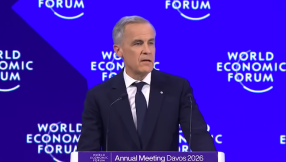
A study of religious life in two Indian villages carried out by an American academic makes fascinating reading. Eleanor Power of Stanford University lived alongside the Christian and Hindu people there for 20 months looking at how their communities worked. Among other things she found that it wasn't dramatic acts of religious devotion that won people's respect, but the "relatively more subtle act" of regular worship.
She concludes: "In sum, people who worship regularly and undertake greater and costlier ritual acts are not only seen as more devout, but are also associated with a suite of traits that are prosocial, other-focused, and morally grounded." Specifically: "They are more likely to be seen as having a good work ethic, giving good advice, being generous, and having good character."
So it isn't the dramatic rituals, renunciations and mortifications that impress. It's the long lifetime of discipleship, in which people patiently invest time, money and effort into their spirituality and their community.
Power's an academic who isn't professionally interested in whether a religion is true, just in how it works. But any Christian reading this against the background of faith in the modern world ought to be struck by her conclusions.
In an age when the Church in the West is periodically in a condition of panic about its future, when new evangelistic initiatives come along in remarkably quick succession, and when the finest minds of Christianity are exercised on how to stop the rot and save the Church, I wonder if we've forgotten how important going to church and sitting still is.
It doesn't make headlines for Christian journalists and it doesn't seem to change very much. It's hard to say much about it other than that it happens. But the simple act of committing to go, and going Sunday by Sunday, whether you feel like it or not and whether you have other calls on your time or not, appears to be a powerful statement that something is happening – and Power's research seems to show that there, at least, it is noted and respected.
The qualification is important. Indian villages where people tend to know more about each other's lives are not the same as British towns where they might not know very much at all. But even here, in spite of the frequent scandals that cause Christianity to be held up to public derision, churchgoing is generally seen as a good thing. Churchgoers are likely to be involved in the community, good neighbours, kind and helpful. And this witness of presence – which we run the risk of denigrating when we focus on more dramatic kinds of evangelism – is a a mark of the continuing activity of God in the world.
This shouldn't surprise us. Jesus said in the Sermon on the Mount: "Neither do people light a lamp and put it under a basket. Instead, they set it on a lampstand, and it gives light to everyone in the house. In the same way, let your light shine before men, that they may see your good deeds and glorify your Father in heaven" (Matthew 5:15-16). When we live and worship quietly day by day and week by week, that's what we're doing.
More than that, though: we're being formed into the likeness of Christ. Churches can be deadening, life-denying places. But that's when they fail. When they are what they are mean to be, they make us better people. Church makes us less selfish – we have to talk to people we don't want to talk to and be kind to people who irritate us. Church expands our minds and spirits, breaking down our prejudices and helping us see the world through different eyes. And most of all, church helps us pay attention to God. Whether the sermon is dull or the songs are annoying isn't the point: for an hour and a half on Sunday morning I have no excuse.
Do we lack confidence in church? I think we might. But churchgoing is far more effective, at every level, than we sometimes realise.
Mark Woods is the author of Does the Bible really say that? Challenging our assumptions in the light of Scripture (Lion, £8.99). Follow him on Twitter: @RevMarkWoods













